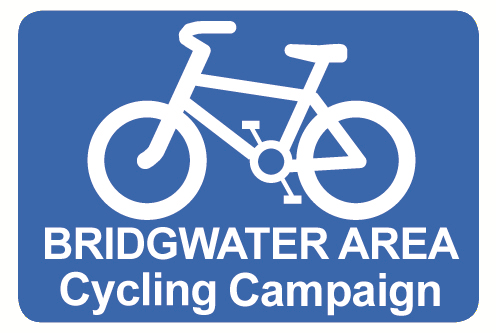Bristol, 18 November 2023

Members of Bridgwater Area Cycling Campaign (BACC) had an enjoyable, informative and empowering day out last Saturday (18th November) at Bristol’s Future Transport Summit. Hosted by Bristol Cycling Campaign, the event was aimed at sharing knowledge and experiences from the UK and abroad on how our transport systems can shift to more sustainable means in the coming years.
Transport is the largest emitting sector of greenhouse gas emissions, at 24% in the UK. Decarbonising our transport systems therefore plays a key role in tackling climate change, and while electric vehicles can play a part, shifting away from car use to modes like walking, cycling and public transport is absolutely essential too.
Speakers at the conference included Cllr Mete Coban MBE, Cabinet Member for Climate Change, Environment and Transport in Hackney, who described how the high proportion of residents without access to a car has shaped decisions over the last few decades there. The result is a place with infrastructure that supports walking, wheeling and cycling much better. One might argue that the situation in Bridgwater is very different. But surely, what works for active travel in one place works for active travel anywhere – it’s the same basic principles that will support people choosing to walk, wheel or cycle regardless.
Bristol Youth Mayor Mya Parker and Ellen Sheehy, Bristol Youth Council Member for Transport, spoke about the particular issues facing young people for mobility in Bristol. Many of them choose not to learn to drive, preferring instead to use bikes or public transport. As in Somerset, though, the bus services in Bristol leave a lot to be desired.
Fraser Reid, Associate Director at WSP, talked about the benefits of reducing motor vehicle access to town centres. The popular media narrative is that if people can’t drive into town, businesses will fail. In fact, the opposite is true: when walking, wheeling and cycling into town centres becomes more normal, businesses actually see significant rises in footfall, dwell time and income.
We also heard from Andy Salkeld, Active Travel Team Leader at Leicester City Council, and Alex Romankiw of Leicester Cycling Campaign. They gave the delegates a wealth of good advice on how voluntary groups like BACC can work successfully with their local authorities.
One of the most important topics was that of enabling women to walk, wheel and cycle more. Most of the journeys around Bridgwater (or any town for that matter) are done by women – the school run, or running errands – and yet they are often the ones who feel the most vulnerable, whether that’s from a road safety angle, or just in terms of personal safety. Active travel, and cycling in particular, has the potential to reduce short trips by car massively. It’s vital we put measures in place that will support women to make this their first choice.
All in all, we came away hugely inspired and enthused about the future of cycling and active travel in Bridgwater. Although much of what we heard supports the work we’re already doing, it gave us many more ideas about where to take things in the future.
What do you think? What are the most pressing issues facing Bridgwater’s transport systems? What would enable you to cycle or walk more often? Get in touch – we want to hear from you!

